|
This year I had the opportunity to attend two conferences in San Diego (where I am writing this). One being the American Schools of Oriental Research (or ASOR, which I attend every year) and the Society for Biblical Literature (SBL, first time). These conferences can seem intimidating to some, especially if you are new to the field of archaeology and considering it for a career. It is important however, to stay up to date on excavations, new finds and new interpretations discussed in the ever growing field of archaeology in the Middle East. On top of this, you may even get to rub shoulders with some of the “rockstars” of archaeology, pun intended. I believe this is the perfect time to start a dialogue with those who may be interested in a career in archaeology. I have received questions on how one would get into this gig, so I will briefly tell my own story of how I got involved in archaeology as well perhaps give some advice to those who are considering this as a vocation. In the BeginningThere was something romantic about archaeology when I was younger. Naturally, anyone would be enticed by the life of adventure brought on by Indiana Jones and Laura Croft. However, the reality of our craft comes crashing down upon you in your first anthropology/archaeology 101 class. From what I observed most people had trouble staying awake in these classes. I was a lost freshman at the University of North Florida, trying to find my way amongst the thousands of other students taking their Gen Eds. Finding myself was harder than it should have been considering that I was not even a great student in my own right, as I rarely went to class or even prepared for exams. I simply floated by. Nothing interested me. All I knew is that I did not want pursue a generic degree, and I did not aspire to making a lot of money to live comfortably. I wanted to do something that was different. I also grew up in a conservative Christian background and I had a desire to investigate the Bible on a deeper level. I felt that if I were to understand this book, that was the source for my faith, then how best to investigate it then to study the periods and people in which it was about? After almost two full years of floating, I did something that was very uncharacteristic of me. I wanted to try out this archaeology thing, so I picked up a phone and called the University of Chicago. Why the University of Chicago? Because that was where Indiana Jones taught in his movies of course! I called and I asked the admissions councilor what it took for me to do my PhD in archaeology there. They were very helpful in telling me exactly what I needed to know. They gave me a list of things to keep in mind and I want to share that list with you. I will be upfront with this however, to be a professional archaeologist, it will require a considerable amount to schooling, almost 10+ years. But there are other ways to be involved in archaeology without all of that and I will address career choices at the end of this post for those that may still want to be involved indirectly in archaeology. For those interested in becoming a professional archaeologist, take note and read below. I. Learn the LanguagesI wanted to investigate that people and places of the Bible. In order to do that I had to put myself in a position where I could learn the language(s) of the book and ancient people. That meant going to a school where I could learn Hebrew and Greek. The reason for this should be simple: how can one claim to know the culture or people in question if one cannot bother to learn the language? Language reveals much about a particular culture and it should be the first step to really understanding other people. What we read in a book such as the English Bible or even in a history textbook about a culture that is not from our western world is an interpretation of the actual thing. Based on this revelation I found a school, Harding University, which met my needs and offered a major in Biblical Languages. I studied Greek and Hebrew as well as doing some advance study in backgrounds of the Biblical text. These are good starting points to build off of if you are interested specifically in the world of the Bible. If your interest is in another part of the world, then go to a school that offers that. For example, if you are interested in archaeology in Central America, you can find a school that will prepare you for that. If you are interested in Japanese archaeology, you can find a school in that. All it really takes is a quick Google search. If you need help finding a school I would be happy to give assistance. Messaging me in the comments section below. 2. Go on a DigPerhaps this should be number one, but this also should be a no-brainer. How will you know if you like archaeology if you have never been on a dig? Here’s the good news, you can go on a dig and not be an archaeologist. There are excavations going on all over the world and at all different times of the year. Most excavations offer “field schools” in which they will actually teach you the methods and practices of an on-going excavation. My very first dig was during my undergrad was with Khirbet Qeiyafa excavations (2013) in Israel. I was simply just happy to be there. I had no experience and had only been told what life on an excavation was like. The first week was hard only because I had no idea what to expect. It was actually quite laborious for me and I did not enjoy waking up at 4am in order to go do physical labor. The question always comes to mind to every beginner-- "Did I actually pay for this?" However, it became all worth it the first time I uncovered pieces of a storage jar from the 10th Century Iron Age. The longer I stayed with it, the more I began to wrap my mind around the methods and cadence of a dig. It was rewarding and not only did I enjoy it, I realized I was good at it. Since then, I excavated other sites such as Abel Beth Ma’acah (2015) while I was working on my MA, and am currently at Khribet Safra (2018, 2019) while on my PhD. I have even done some CRM (cultural resource management) work with the military cataloging Post Civil War cemeteries and surface surveys at major military bases. So naturally I would recommend you go on a dig. However, I have good news and bad news. The good news is, you don’t even have to consider being a professional archaeologist in order to be involved in a dig. I know scores of people who simply love to do field work, and they also have other jobs they do back home. For them, it becomes a hobby and they have found out that you can still be involved in archaeology without all of the school. But, here’s the crux, going on a dig is typically not cheap, especially if it is overseas. Most digs will offer packages that include room and board, food and weekend tours. Take advantage of these because nothing beats traveling in a foreign land with an archaeologist who has been excavating there 20+ years. At Safra we do something similar in which we travel to exotic sites in Jordan on the weekends and will cap off the remainder of the trip in Israel the final week. To see what the daily life of an archaeologist in the Middle East looks like, see my Youtube video here. 3. Consider your career optionsJobs in archaeology are few and far between. It is no secret that everyone wants the cushy teaching job, teaching in the Fall and Spring while excavating in the summers. However, this is not realistic for most. Consider all of the schools in the United States, then think about all of the schools that have archaeology programs. I will go ahead and tell you that there are not many. At the conferences I attend, there are many young PhDs looking for a teaching jobs and the sad part is that most of them will never find one. They will have to learn to contribute to our craft in another way. Luckily we are in a day-in-age where our government is becoming conscious of its ecological footprint as well as its culture footprint. I have mentioned before my experience with CRM, in that there has developed this entire industry that seeks to help private landowners and even the government navigate preserving America’s culturally sensitive heritage. I have done quite a bit of work in this area and there is a real need for archaeologists to commit themselves to preserving America’s intellectual history. As I mentioned before there are many ways one can be involved with archaeology and not be a professional archaeologist. Gone are the days where the archaeologist needs to be a jack-of-all-trades in educating themselves in every facet of ancient culture. We need ceramic experts, biologists, chemists, linguists, historians, economists, metallurgists, zoologists, botanists, geologists, medical professionals, database analysts, coders, GIS specialists, cartographers, fund raisers, and the list goes on. All of these disciplines and specialists can be archaeologists in their own right and help in the ultimate goal for uncovering and preserving the past. 4. Stay humbleI did not end up at the University of Chicago, but I found an institution that met my needs and is willing to support me and my research. Every day, I learn something new about myself and about history that adds another puzzle piece into my ever-growing view of the world we live in. At ASOR this year, I met with the great William G. Dever, a world renown archaeologist and was incidentally the professor to two of my professors (guess that would make him my grand-professor). He had this advice to say to me. He told me to always be willing to learn and do not ever think that you know everything. When you get to the point where you stop learning then you have failed as an academic. I understood what he was saying, and I was grateful for his wisdom. I have seen how fluid our discipline can be in that new finds and new methods are being discovered every day that can be applied to how we view the ancient world. Humility play a large role with every academic because when you have stopped learning, then you cease to be a scholar.
Archaeology is an immensely rewarding discipline that can take you to places you never dreamed you would go. Understanding the past has immediate relevance to our own issues in the present. Find your niche and get involved. Thanks for reading! If archaeology is something you are interested in, feel free to reach out. I can recommend some schools for you and of course help you in your search to find a dig.
8 Comments
Rishi
8/24/2020 10:27:41 am
Thanks for this information...... ....
Reply
Tal
8/26/2020 05:11:56 pm
Thanks, Rishi. Feel free to email me if you need any more advice about a career in archaeology at --> archwithtal@gmail.com
Reply
Marie
7/1/2021 07:11:44 pm
Hi! I've always been fascinated by this field. I'm still a highschool student and I'm not too sure where to start when it comes to finding the right university and program. Also, I'm french Canadian, so would the fact that englishn is my secondary language be a problem? Thanks in advance!
Reply
8/12/2021 11:48:30 am
No speaking multiple languages will only help you! There is quite a bit of archaeology literature written in French so you will have an advantage over others because you can read and interact with people from both languages. Let me know if you need help in picking a school in the future. Good luck!
Reply
Marian
12/9/2021 12:09:05 am
Hi! Thank you so much for this great piece! I've always been interested in ancient history, particularly Classical Studies and Classical Archaeology. My university offers a Classical, Near Eastern, and Religious Studies degree with several streams, two of the most interesting to me being Classical Studies and Classical Archaeology as I've mentioned. Classical Studies technically encompasses archaeology, but it also has focuses on literature, history, and art. What do you think is the best stream to go into in terms of a future career in archaeology (not necessarily as an archaeologist)?
Reply
Prathap. M
3/2/2022 03:51:02 am
Hi Talmadge,
Reply
Anupom Das
6/29/2022 02:15:32 am
Dear Sir,
Reply
Michael Breaud
8/5/2022 02:51:37 pm
It's a pleasure to meet you, Talmadge,
Reply
Leave a Reply. |
Archives
June 2021
Categories
All
|
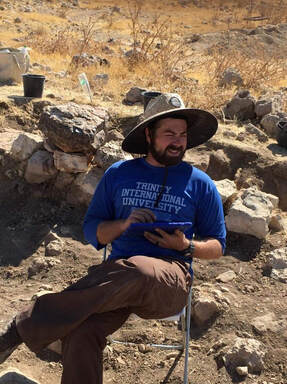
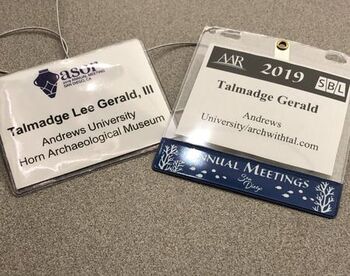
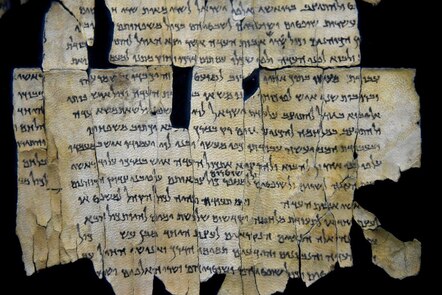
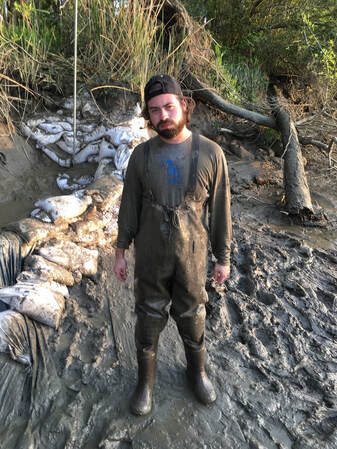
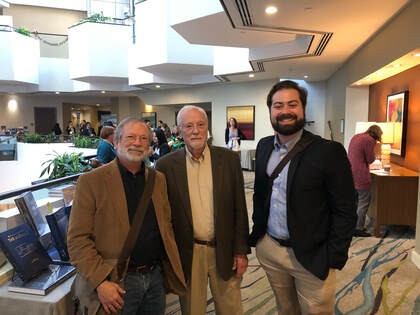
 RSS Feed
RSS Feed